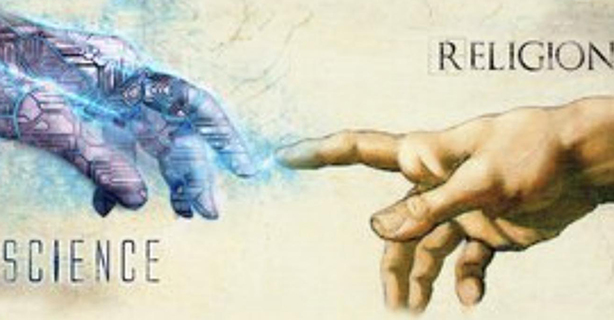- Casa din Home Alone a fost vândută chiar în preajma sărbătorilor
- Marcel Ciolacu explică zborurile private: „Am plătit din banii mei personali, nu din bani publici”
- Crăciunul: Istorie, Tradiții și Semnificații Profunde
- Nicușor Dan: „Să facem ce știm că trebuia făcut de 35 de ani”
- Atac masiv asupra Ucrainei în ziua de Crăciun
Are Science and Faith Truly Controversial?

|
Getting your Trinity Audio player ready...
|
In the ongoing discourse between science and faith, a prevailing narrative often portrays these two realms as perpetually at odds, engaged in an unyielding conflict between reason and belief. Yet, a closer examination reveals a more nuanced relationship, one that is marked by moments of tension but also instances of harmony and mutual enrichment.
At the heart of the supposed controversy lies the fundamental nature of these disciplines. Science, characterized by empirical observation, experimentation, and the quest for measurable evidence, seeks to unravel the mysteries of the natural world. It meticulously dissects phenomena, formulates theories, and refines understanding through rigorous scrutiny and peer review. Faith, on the other hand, encompasses a deeply personal and spiritual domain, navigating questions of meaning, purpose, and existence beyond empirical verification. Rooted in traditions, scriptures, and personal experiences, faith often grapples with matters that transcend the tangible and empirical, offering a framework for moral guidance, spirituality, and existential contemplation.
The supposed controversy arises when these domains intersect on matters such as cosmology, evolution, and the origin of life, where scientific explanations may diverge from certain religious narratives. Instances in history, such as the Galileo affair or debates surrounding evolutionary theory, have perpetuated the perception of an irreconcilable conflict between scientific inquiry and religious belief. However, this portrayal oversimplifies the relationship between science and faith. It fails to acknowledge the instances where they coexist harmoniously or even enrich each other’s perspectives. Many scientists, deeply committed to empirical inquiry, simultaneously hold profound spiritual beliefs, recognizing the capacity for both realms to contribute to a comprehensive understanding of the universe. Scientific inquiry unveils the mechanics of the cosmos, elucidating natural laws and mechanisms governing our world. It offers tangible explanations for a multitude of phenomena and has yielded remarkable advancements that have shaped modern civilization. Simultaneously, faith provides individuals with a lens to contemplate deeper existential questions, fostering ethical values, resilience, and a sense of purpose beyond empirical understanding.
The perceived controversy between science and faith may be more a result of how these domains are often misrepresented or pitted against each other rather than an inherent clash. Perhaps the controversy lies not within the disciplines themselves but in the human tendency to polarize and oversimplify complex concepts often exploited by politics.
Politics often fuels the fiery debates between faith and science, creating a battleground where contrasting ideologies clash. The intersection of these two spheres becomes a contentious arena when political interests influence the discourse around issues such as climate change, evolution, reproductive rights, and ethical research practices.
At the heart of these clashes lies the struggle for influence and power. Political ideologies often co-opt religious beliefs to sway public opinion or justify policy decisions. Conversely, scientific evidence is sometimes disregarded or manipulated to align with certain religious or political agendas.
The issue of climate change exemplifies this intersection. Scientific consensus supports the reality of human-induced climate change, yet political divisions often blur or deny these findings. Some religious perspectives also enter the debate, with interpretations of humanity’s role in stewardship over the environment differing significantly. Politicians might use these religious beliefs to mobilize or justify environmental policies, creating tensions between scientific evidence and faith-based convictions.
Similarly, debates on evolution versus creationism in education become battlegrounds for political influence. Some advocate for teaching creationism or intelligent design alongside evolution in schools, citing religious freedom. This debate often transcends educational policies and becomes entangled with political agendas that seek to promote specific religious beliefs in public discourse.
In issues related to reproductive health, science provides evidence-based insights into matters like abortion, contraception, and fertility treatments. However, political actors frequently leverage religious beliefs to influence legislation, public opinion, and access to these services, leading to contentious debates rooted in conflicting values. Moreover the entwining of politics, faith, and science can polarize society, creating divisions where dialogue and understanding are crucial. When political agendas hijack scientific facts or manipulate religious beliefs for gain, it hampers the possibility of finding common ground.
Embracing both scientific inquiry and faith-based contemplation can lead to a more holistic understanding of reality, acknowledging the limitations of each perspective while appreciating their unique contributions. Ultimately, the convergence of science and faith could offer an opportunity for a more profound exploration of existence. Rather than perpetuating a false dichotomy, acknowledging the synergy and symbiosis between these realms can pave the way for a more inclusive and enlightened discourse, recognizing that both science and faith play valuable roles in shaping our understanding of the world.








